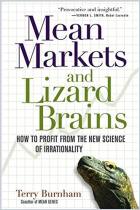Únase a getAbstract para acceder al resumen.

Únase a getAbstract para acceder al resumen.
Michael J. Mauboussin
More Than You Know
Finding Financial Wisdom in Unconventional Places
Columbia UP, 2006
¿De qué se trata?
A collection of expert essays offers explanations of how the market moves based on data from unexpected places.
Recommendation
This book began as a series of 50 short essays Michael J. Mauboussin wrote for investors. He advocates using a multidisciplinary perspective to try to understand how markets behave. By its nature as a collection of essays, this book is capricious and desultory, jumping around from subject to subject. The essays do not necessarily relate to each other, but that has some advantages, given the author's belief in multiple analyses. His book is not the place to seek a sound, consistently argued theory about why the market does what it does. On the contrary, Mauboussin repeatedly contends that no one really understands why the market acts the way it acts. In fact, he says, attempts to explain it often rely on patterns that aren't really there. getAbstract highly recommends this book as an excellent antidote for the disease of being overconfident about the wisdom of prevailing financial and economic opinions.
Summary
About the Author
Michael J. Mauboussin is the chief investment strategist at a major capital management company and an adjunct professor at Columbia University's Business School.

















Comment on this summary